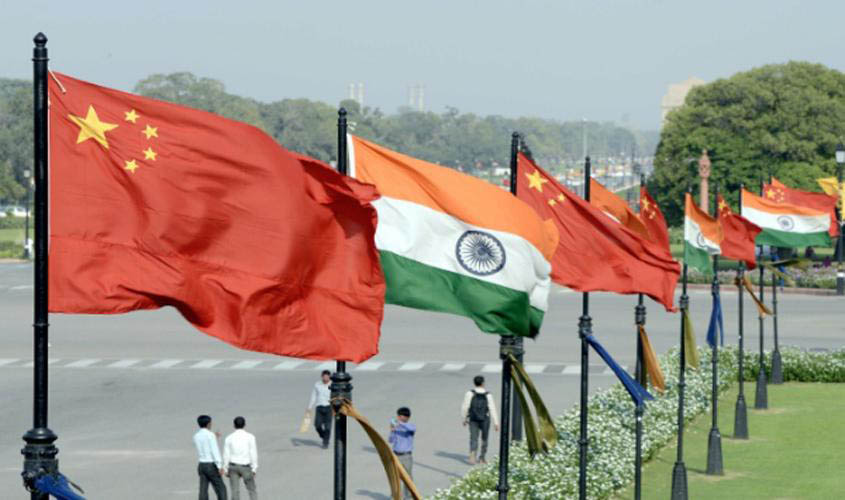Unlike several other analysts and commentators based in India, this columnist has acknowledged the sweep of the geopolitical vision behind the One Belt One Road (OBOR) project, although he is less sanguine about the China Pakistan Economic Corridor (CPEC). The only way the CPEC can succeed would be (a) for the Punjabi-dominated Pakistan military to ensure justice for those ethnic groups along the route of the corridor that are presently being subjected to discrimination, and (b) ensure the involvement of India in the project. Should the CPEC be made open to Indian entities for purposes of trade and commerce across its length, the financial viability of the scheme would substantially strengthen, as would prospects for economic growth in Pakistan. Should these conditions not be met, the CPEC would face increasing headwinds through social disturbances and economic slowdown, and would eventually become a ghost corridor, ferrying little but dust across most of its length. As much for Pakistan’s sake, as for China’s, the participation of India in the CPEC is essential, even while the fullscope entry of India and its commercial and manufacturing entities into the OBOR project would be desirable for its promoter, the People’s Republic of China. Given such imperatives, it was self-defeating in the extreme for the Ministry of Foreign Affairs (MoFA) in Beijing to seek to humiliate India by blocking the entry of this country into the Nuclear Suppliers Group (NSG). This repeated act of obstruction by the PRC on its most consequential neighbour has given wings to the arguments of those who warn that China, under its current leadership, will never accept India on equal terms, and hence that a steady descent into conflict as took place during 1957-62 may be inevitable. Hopefully, President Xi Jinping will be able to overrule MoFA and its backers in an India-negative policy, the PLA, to ensure that China joins Russia, France, the US, Japan, the UK and other major powers in welcoming India into the NSG, without making that conditional on Pakistan being admitted as well. Only those who lack knowledge of high school mathematics would place India in the same basket as Pakistan. That would be similar to India equating Vietnam and China in scale and heft, and deciding policy on the basis of such a spurious equality
Assuming the ending of China’s obstruction of India’s entry into the NSG, it would be desirable to examine the conditions under which India could participate in OBOR, including in the CPEC segment. The latter would, of course, be under the express condition that it would do so without any prejudice to the fact of its sovereignty over some of the territories passed by the CPEC and which are in the temporary possession of the Pakistan military as a consequence of the Mountbatten-Nehru ceasefire agreed upon in 1948, when as much as a third of Jammu & Kashmir was still in foreign occupation. Those involved in tracking the future trajectory of countries calculate that India will be the third biggest economy on the globe within less than a decade, which indeed is the reason
Participation in OBOR and in CPEC by India will have to be on the basis of equality of rights and treatment with the other major participating powers, including Pakistan and China. Over time, such a pragmatic move on the part of Pakistan would translate into greater internal stability for that country, as well as higher growth and a long-delayed climate of normalcy in Pakistan-India relations. Hopefully, Xi will be able to convince both his domestic anti-India lobby, as well as the Pakistan military establishment, of the benefits of opening the CPEC to India in a spirit of shared prosperity.
Indian companies in infra, software and fabrication would be force multipliers for OBOR and ensure both timely completion of stages as well as high quality of work. Similar involvement in CPEC would, among other benefits, ensure that people in Pakistan became aware of the potential for India to be an economically beneficial factor in their lives. Over time, tens of thousands of citizens of India would be working within Pakistan, employing and training hundreds of thousands from that country in ongoing projects. Such a partnership would have the side effect of weakening the hold of radicalism in Pakistan, given that India is fully within the subcontinental ethos of moderation and syncretic lifestyles, and Indian culture is already popular in Pakistan, especially some of the products of Bollywood. Given the right circumstances, it would be possible for Prime Minister Modi (perhaps in a second term) to ensure a normalisation of relations with Pakistan, but this will come about only after a similar process gets completed with China. And for this to happen, the advantage of a close relationship with the US is key. Hence the imperative of moving on a path of leveraging a transformation in the India-US defence and security relationship into a mutually beneficial commercial compact with China, which would then be followed by the normalisation of ties with Pakistan that has thus far been elusive. All this is within the grasp of President Trump, President Xi and Prime Minister Modi.
Hopefully, they will create history in the form of a concert of the 21st century’s Big Three, with India linking in separate ways with both of today’s superpowers.

